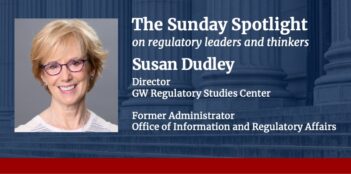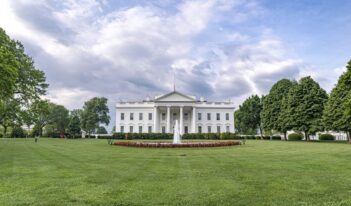
Judge finds that the rule’s loopholes make it arbitrary and capricious.
In a January 2012 letter, the Department of Health and Human Services (HHS) asked the Presidential Commission for the Study of Bioethical Issues, chaired by University of Pennsylvania President Dr. Amy Gutmann, to address this question. In response, the Commission recently issued a detailed report, Safeguarding Children: Pediatric Medical Countermeasure Research.
In the report, the Commission considers the “ethical considerations in evaluating and conducting pediatric medical countermeasures (MCM) research,” including the study of the use of anthrax vaccine (AVA) in children, regardless of whether such studies are conducted before a bioterrorism attack (pre-event) or after the use of countermeasures following such an attack (post-event).
A Penn Law Professor, Dr. Anita L. Allen, was among the Commissioners responsible for issuing the report. According to Allen, “the Commissioners and our professional staff in Washington worked especially hard for more than a year to understand the issues raised by pediatric countermeasure research. “ In the end, “we discerned a very real need to protect children from unwarranted research, while ensuring appropriate access to the fruits of biomedical understanding,” Allen said.
The report concluded that any pediatric MCM research conducted before an attack, including AVA tests, must generally be structured so as to pose no greater than “minimal risk” to children. It defined minimal risk as “no greater risk than that faced by a healthy child in daily life or at a routine medical examination.”
The Bioethics Commission organized its analysis around four principles: “respect for persons, beneficence, and justice – as outlined in the Belmont Report – and democratic deliberation.” When pre-event MCM research poses greater than minimal risk, it does not satisfy beneficence, which for pediatric research means protecting children from “harm and undue risk of harm” and maintaining “non-maleficence, which requires us to reduce research risks as far as possible.”
Existing medical research rules were established decades ago. In 1974, the National Research Act created the National Commission for the Protection of Human Subjects of Biomedical and Behavioral Research. Its work resulted in the current federal rules governing medical research contained in both Title 21 (FDA) and Title 45 (HHS) of the Code of Federal Regulations. According to the Bioethics Commission, these regulations have “proven largely capable of protecting children in the face of increasing pediatric research.”
However, pediatric MCM research “presents unique ethical challenges to the existing regulatory framework,” especially with the threat of a bioterrorism attack.
As for the anthrax vaccine, the Commission concluded that the government should not yet begin pediatric pre-event testing. It noted “that before ethical pre-event AVA trials can be considered, further steps must be taken, including additional minimal risk research with adult participants to determine whether the research risks to children—who do not stand to benefit directly from it—pose no substantial risk to their health or well-being.”
Currently the FDA approves AVA “for the active immunization for the prevention of disease caused by [anthrax] in persons 18 through 65 years of age.” Since 2001, about 2.1 million doses of AVA have been given to military personnel, and the data indicate “that the mild and moderate adverse events associated with AVA are no worse than for other vaccines.”
The Commission notes that “it is possible with additional testing in adults aged 18 to 20 years—testing to determine the adverse effects, alternative dosing methods, and immunogenicity—testing of AVA with the oldest children (e.g., adolescents who are 16 to 17 years of age) could be considered no more than minimal risk.”
However, “[t]rials with children should begin only after all adult data required by FDA to scientifically and ethically justify pediatric research are acquired.”
The Commission also considered the ethical considerations related to post-event measures. There already exists a “plan to provide children, like adults, with a 60-day course of antibiotics as well as AVA.” The Commission stressed that “any post-event distribution of AVA to children” ought to take place only after “extensive community engagement,” the adoption of “scientifically sound” protocols, and establishing an adequate process for “informed parental permission,” among other conditions.
The Commission also underscored the importance of monitoring and studying the effects of any post-event treatments: “post-event pediatric MCM research should be planned in advance and conducted when MCMs are administered to children in an emergency.” In fact, “[i]f a pre-event study is not approved and AVA is nonetheless administered to children in the event of an attack, post-event research would be ethically required.”
The Commission concluded that the government should seek “to safeguard all children from unacceptable risk in research and through research that promotes their health and well being.” The Commission’s report provides the government and the public a framework that deserves to be studied closely to ensure that all medical countermeasures to bioterrorism for children can meet these vital goals.



